Podcast: Play in new window | Download (Duration: 27:22 — 18.9MB) | Embed
Subscribe: Apple Podcasts | Spotify | Amazon Music | Android | Pandora | iHeartRadio | JioSaavn | Podchaser | Gaana | Podcast Index | Email | TuneIn | Deezer | Anghami | RSS | More

The Desert of Sin – Crossing the Desert: Lent and Conversion with Deacon James Keating
In this episode, Deacon James Keating and Kris McGregor discuss the concept of the “Desert of Sin”. They delve into the idea that sin, while providing some form of consolation, ultimately leads to spiritual emptiness and turmoil.
Dcn. Keating emphasizes the importance of patience in the process of personal and spiritual transformation, particularly in dealing with others who may not share the same level of spiritual fervor. He warns against the temptation to become impatient or frustrated when others do not respond as expected, stressing the need to trust in God’s timing for their conversion.
Discerning Hearts Reflection Questions
- Reflection on the Desert of Sin: How do we recognize the mirage of sin in our lives and understand its inability to provide true fulfillment? How can we invite Jesus into our “desert” of sin to offer us real life?
- Patience in Personal Growth: Reflect on the virtue of patience in your spiritual journey. How can impatience hinder our own progress and potentially lead to despair? How can we cultivate patience with ourselves and others as we strive for spiritual maturity?
- Living Virtuously in Response to God’s Love: Consider the idea that receiving God’s love should naturally lead to loving God in return through virtuous living. How can we demonstrate our love for God through our actions and choices in daily life?
- Role of Saints as Models of Holiness: Reflect on the lives of the saints as mirrors of hope. How can studying their examples help us understand the path to holiness and deepen our own relationship with God?
- Embracing Joy through God’s Love: Explore the concept of joy as a result of receiving God’s love. How does this joy differ from superficial happiness, and how can we experience it more fully in our lives?

An excerpt from “Crossing the Desert: Lent and Conversion”:
“Any moral conversion, if it is to be real, must work its way into our minds and hearts. The conversion we undergo is one that transforms our entire person, and so our thought processes, habits, perceptions, and affections all become realigned to a new way of seeing good and evil Patience with ourselves, as well as with ohters who are also in the midst of conversion, becomes the key virtue to cultivate. God knows we are on the right track once we embrace such a conversion, and so being gentle on ourselves is not a sign of laxity or weakness of will, but a sign of wisdom.
Of course, the start of a moral conversion can be dramatic and jumpstart a change, but over the long haul of life, the heart of a person must be fully cooperative; otherwise, the person will not adhere to the moral truth for long.”
Deacon James Keating, Ph.D., is a professor of Spiritual Theology and serves as a spiritual director at Kenrick Glennon Seminary in St. Louis, MO.

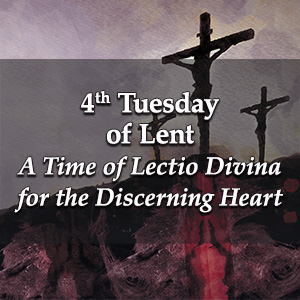 4th Tuesday of Lent – A Time of Lectio Divina for the Discerning Heart Podcast
4th Tuesday of Lent – A Time of Lectio Divina for the Discerning Heart Podcast

 Fr. Timothy Gallagher and Kris McGregor reflect on spiritual desolation’s challenge and the need for prayer and trust in God to overcome it. Emphasizing the role of faith, they share personal experiences and strategies like focusing on truths of faith and seeking intercession.
Fr. Timothy Gallagher and Kris McGregor reflect on spiritual desolation’s challenge and the need for prayer and trust in God to overcome it. Emphasizing the role of faith, they share personal experiences and strategies like focusing on truths of faith and seeking intercession.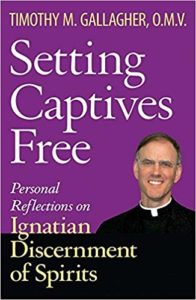
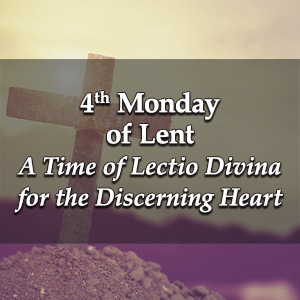 4th Monday of Lent – A Time of Lectio Divina for the Discerning Heart Podcast
4th Monday of Lent – A Time of Lectio Divina for the Discerning Heart Podcast
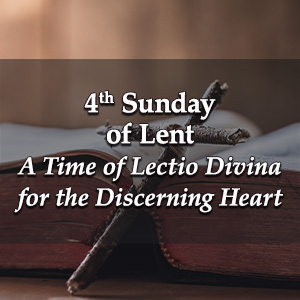 4th Sunday of Lent – A Time of Lectio Divina for the Discerning Heart Podcast
4th Sunday of Lent – A Time of Lectio Divina for the Discerning Heart Podcast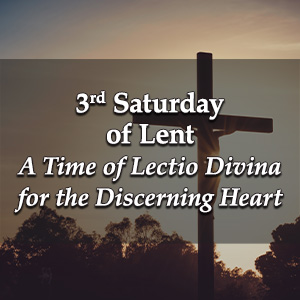 3rd Saturday of Lent – A Time of Lectio Divina for the Discerning Heart Podcast
3rd Saturday of Lent – A Time of Lectio Divina for the Discerning Heart Podcast

